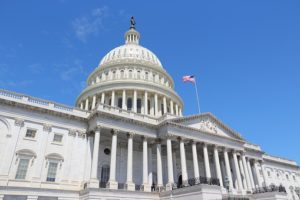On the same day that the Senate voted to repeal requirements that large federal contractors reveal safety violations, a U.S. Senator released a new report detailing contractor safety.

tupungato / iStock / Getty Images Plus / Getty Images
On Monday, the Senate narrowly approved a move to repeal an Obama-era rule known as the Fair Pay and Safe Workplaces Executive Order. Signed into law in 2014 and implemented in October 2016, it requires prospective federal contractors to disclose labor law violations (including those cited by OSHA) and gives agencies guidance on how to consider the violations when awarding federal contracts. The Senate voted 49 to 48 to kill the rule, which had already been voted down in the House. It goes next to the president, who is expected to sign it.
The rule first affected all prime contractors under consideration for contracts with a total value of $50 million or more. That threshold would drop to $500,000 this year if the rule is upheld, and would affect subcontractors as well.
Meanwhile, Senator Elizabeth Warren (D-Mass.) on Monday released a report detailing labor violations by federal contractors. Breach of Contract: How Federal Contractors Fail American Workers on the Taxpayer’s Dime details repeat violations of labor laws by companies that receive billions of dollars in taxpayer-funded federal contracts. According to the report, more than one third of the 100 largest penalties levied by OSHA since 2015 were issued to companies that held federal contracts.
For example, the report singles out the Goodyear Tire & Rubber plant in Danville, Virginia where four employees were killed in 2015-2016. (The plant recently settled with Virginia OSHA for $1.75 million in penalties.) The document states that Goodyear received $8.3 million in federal contracts in 2016. “While many contractors offer good, well-paying jobs and safe working conditions, this is not always the case. Too often these billions of taxpayer dollars fund abuses that endanger workers’ incomes and lives.”
